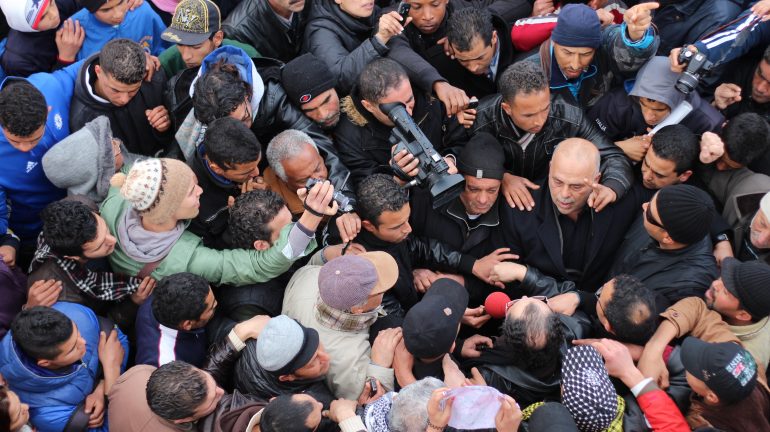Media & Transitions in Middle East and North Africa
17 November 2015- 18 November 2015 | Conference | English | IEMed, BarcelonaSince the late 18th Century, the major changes experienced by humanity have had someone to witness and immediately report them through printed word. From the gazettes of the first “journalists” during the French Revolution we have evolved to the 21st Century “citizen journalists” of the Arab Spring, armed with a multimedia language of much greater impact.
The two events share a common denominator in all the major turning points of our recent history. The testimony of the media is endowed with an enormous capacity to spread the news in audiovisual and written form throughout a wide range of outlets within the reach of broad layers of the population. Media inform citizens about the events and their consequences but they do much more: at their best they offer elements to contribute to building a critical citizenship and act as a watcher of governments, authorities and the powerful; hence the so-called fourth power. With the rapid and sudden changes, media had to give a voice to new actors in their countries to narrate unforeseen events. In short, to create a new narrative which offers its readers the keys to navigate the new historic period in which they are living and recognize themselves in new values.
Over the last 100 years we have experienced two World Wars, the decolonization processes, the overthrow of dictatorships and the emergence of democracies, the fall of the Berlin Wall, the 11-S and the Iraq War. All such events, and many others, have been reported from the frontline by journalism and communications professionals who have helped explain what was happening and therefore, influence the outcome. The accumulated experiences and knowledge of these excellent journalists provide a solid basis for dialogue on the role of journalists and the media in the new era which the Arab world has entered after the so-called Arab Spring.



